Origins of the Van der Linde Gang: How Each Member Joined
Discover the captivating legacy of the Van der Linde gang in Red Dead Redemption 2, exploring themes of kinship, belonging, and transformative outlaw stories.
The Van der Linde gang's legacy in the American frontier remains etched in gaming history, yet the intimate stories of how each outlaw became part of Dutch's found family often linger in the shadows. As of 2025, Red Dead Redemption 2 continues to captivate players with its rich character studies, particularly the poignant origins of these misfits-turned-family. Beyond the heists and gunfights lies a tapestry of rescue, kinship, and twisted idealism that bound these individuals together—a narrative that still resonates with modern audiences seeking stories of belonging in broken worlds. One can't help but feel a bittersweet ache imagining young Arthur Morgan's vulnerability or Tilly Jackson's terror before Dutch's intervention, moments that transformed desperation into devotion.
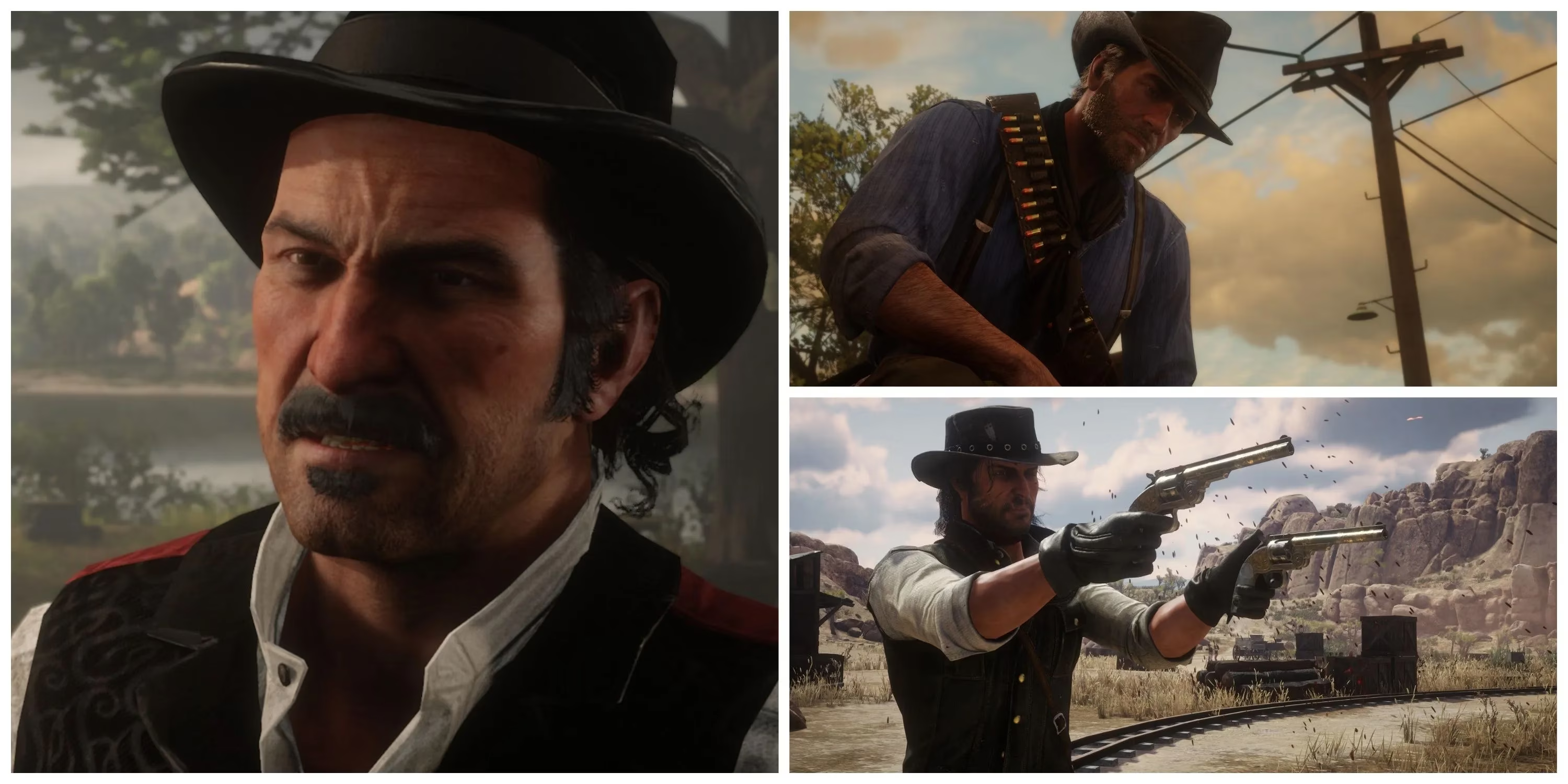
The Foundational Duo: Dutch and Hosea
In the mid-1870s, Dutch Van der Linde—a silver-tongued idealist—crossed paths with Hosea Matthews at a remote campfire. In a twist of fate, both simultaneously attempted to rob each other. Rather than animosity, their encounter sparked mutual admiration. Dutch's charismatic vision of stealing from the wealthy to aid the impoverished resonated deeply with Hosea's moral compass. The duo forged an unbreakable partnership, founding what would evolve from a two-man operation into a sprawling surrogate family. What began as calculated banditry soon blossomed into brotherhood, with Dutch's impassioned speeches about freedom contrasting touchingly against Hosea's grounded wisdom. Observers might sense the almost fatherly pride Hosea later exhibited toward younger gang members stemmed from this foundational trust.
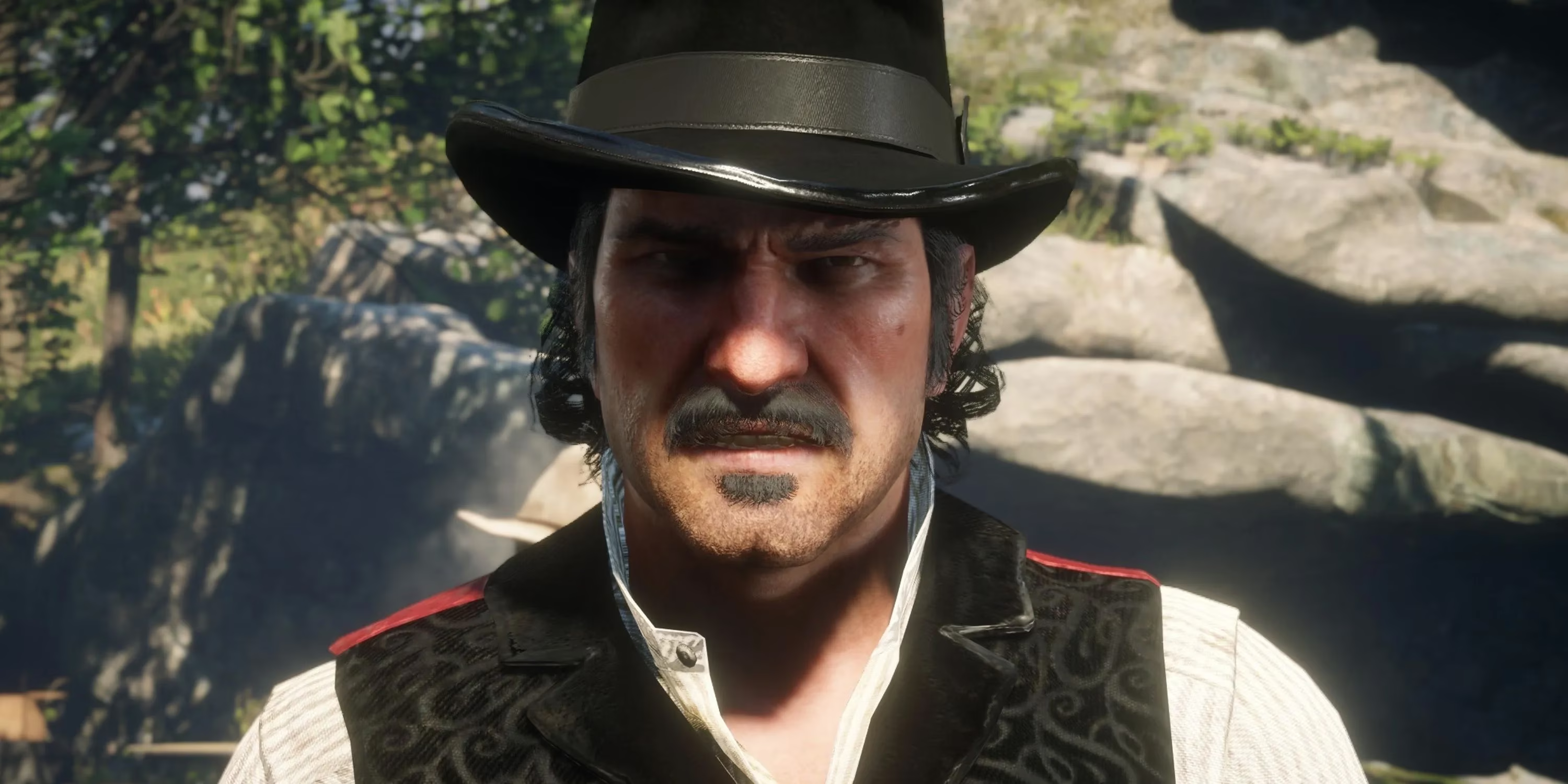
Arthur Morgan: The First Son
Orphaned after his father's death in 1877, a directionless Arthur Morgan wandered the wilderness—a raw, untamed spirit with no prospects. When Dutch and Hosea discovered him, they recognized untapped potential beneath the rough exterior. They embraced Arthur not as a mere recruit, but as a son, teaching him literacy, marksmanship, and their outlaw code. The emotional weight of this adoption still echoes in Arthur's unwavering loyalty; one can palpably feel his conflicted devotion years later when recalling Dutch's mentorship. That scruffy boy transformed into the gang's formidable enforcer, yet beneath the hardened facade lingered profound gratitude for the family he'd been given.
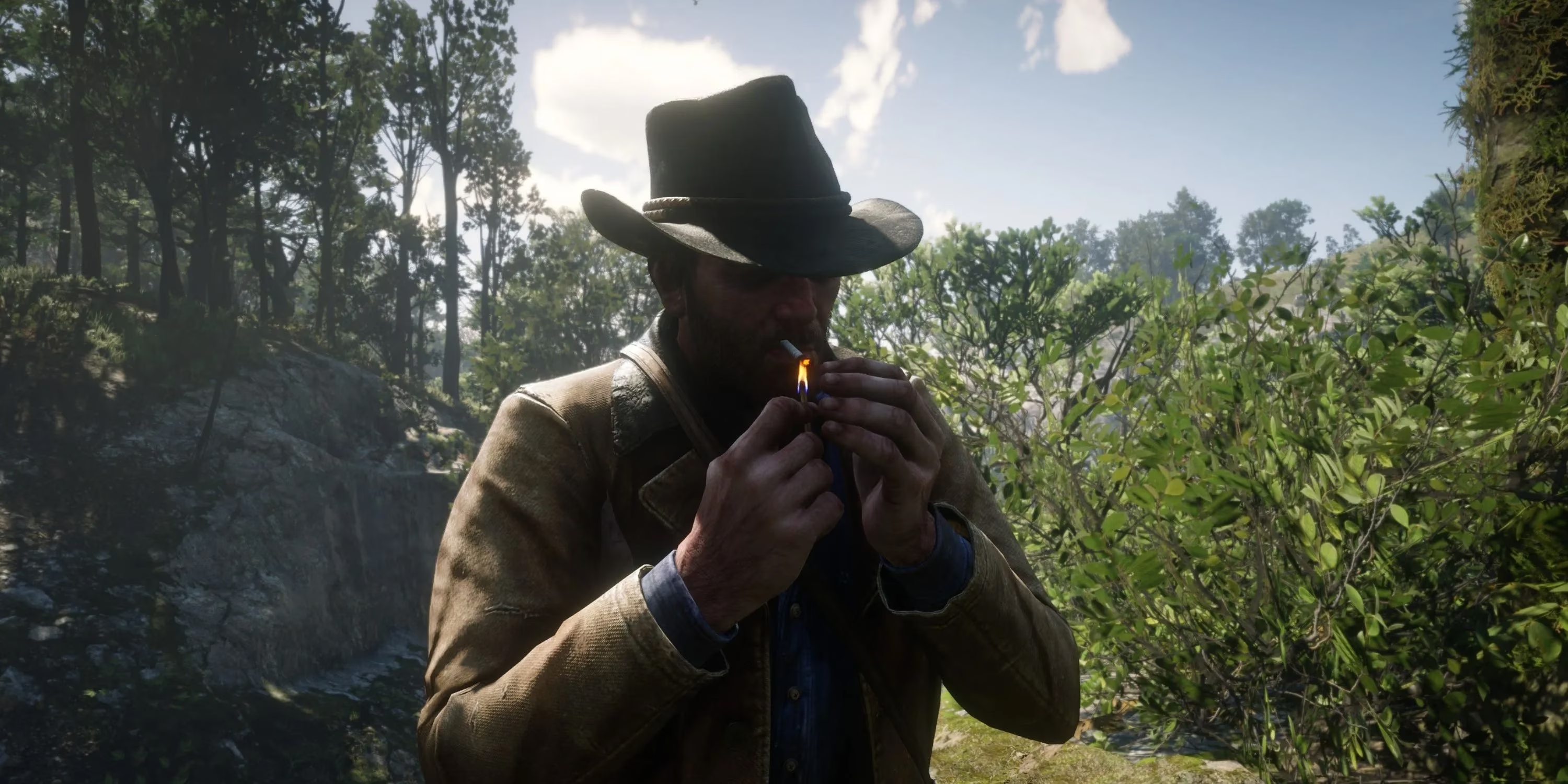
Susan Grimshaw: The Matriarch
Around 1877, fiery-tempered Susan Grimshaw entered Dutch's life, their passionate romance adding new dimensions to the growing group. Though their romantic flames eventually cooled, Susan became the gang's indispensable backbone—organizing camps, mediating disputes, and enforcing discipline with razor-sharp efficiency. Her integration marked the transition from a band of thieves to a structured community. Modern players often reflect on Susan's fierce protectiveness with admiration; she channeled maternal ferocity into safeguarding their makeshift family, embodying resilience even as chaos loomed.
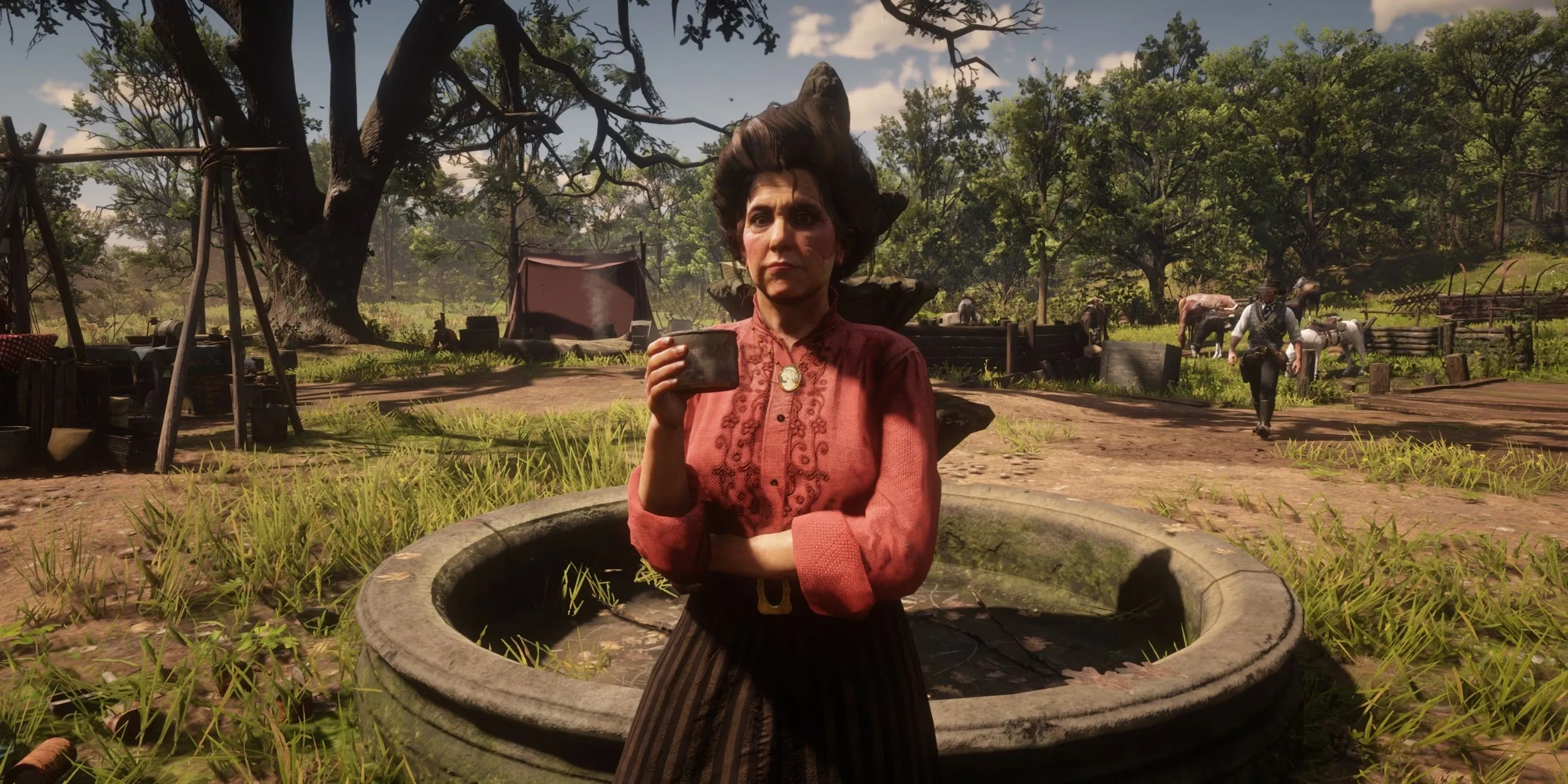
John Marston: The Prodigal Son
In 1885, Dutch intervened dramatically during a hanging execution, saving a scrappy teenage thief named John Marston. Dutch molded John much like he had Arthur—teaching him reading, shooting, and outlaw philosophy—but John's rebellious streak created a compelling dynamic. When John temporarily abandoned the gang after his son Jack's birth, the betrayal cut deep. Yet Dutch's forgiveness upon his return speaks volumes about their bond; one senses John's internal struggle between familial duty and loyalty to the man who gave him purpose. Their relationship remains one of gaming's most tragically layered mentor-protégé narratives.
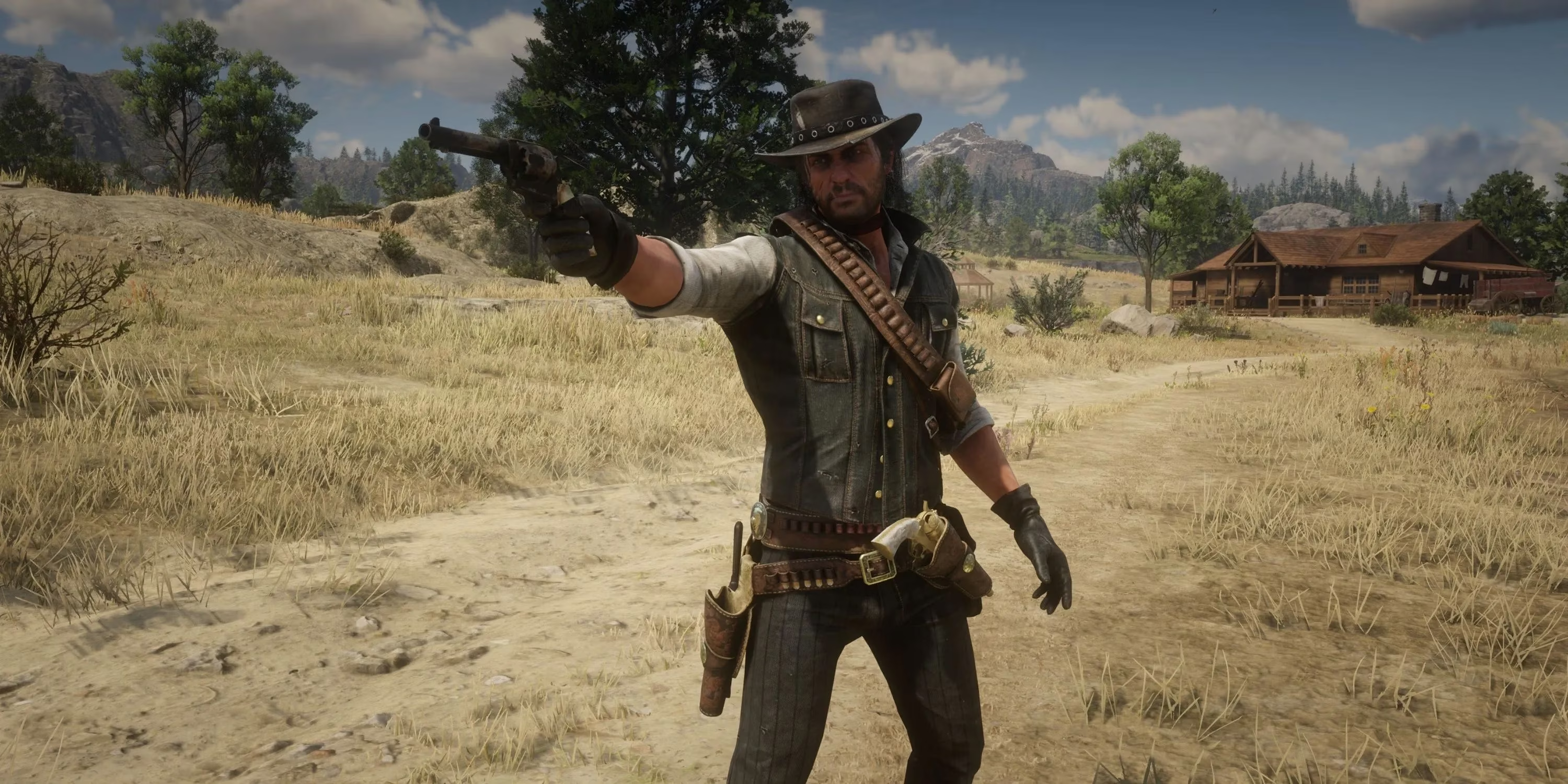
Josiah Trelawny: The Elusive Ally
Mysterious conman Josiah Trelawny likely joined after a saloon encounter where Dutch's charm captivated him. Unlike core members, Josiah drifted in and out freely—a dapper anomaly among rugged outlaws. His value lay in intelligence gathering, providing leads on lucrative scores. The transient nature of his allegiance fascinates; players can almost smell the cigar smoke and whiskey during his clandestine meetings with Dutch, where mutual exploitation danced alongside genuine camaraderie.
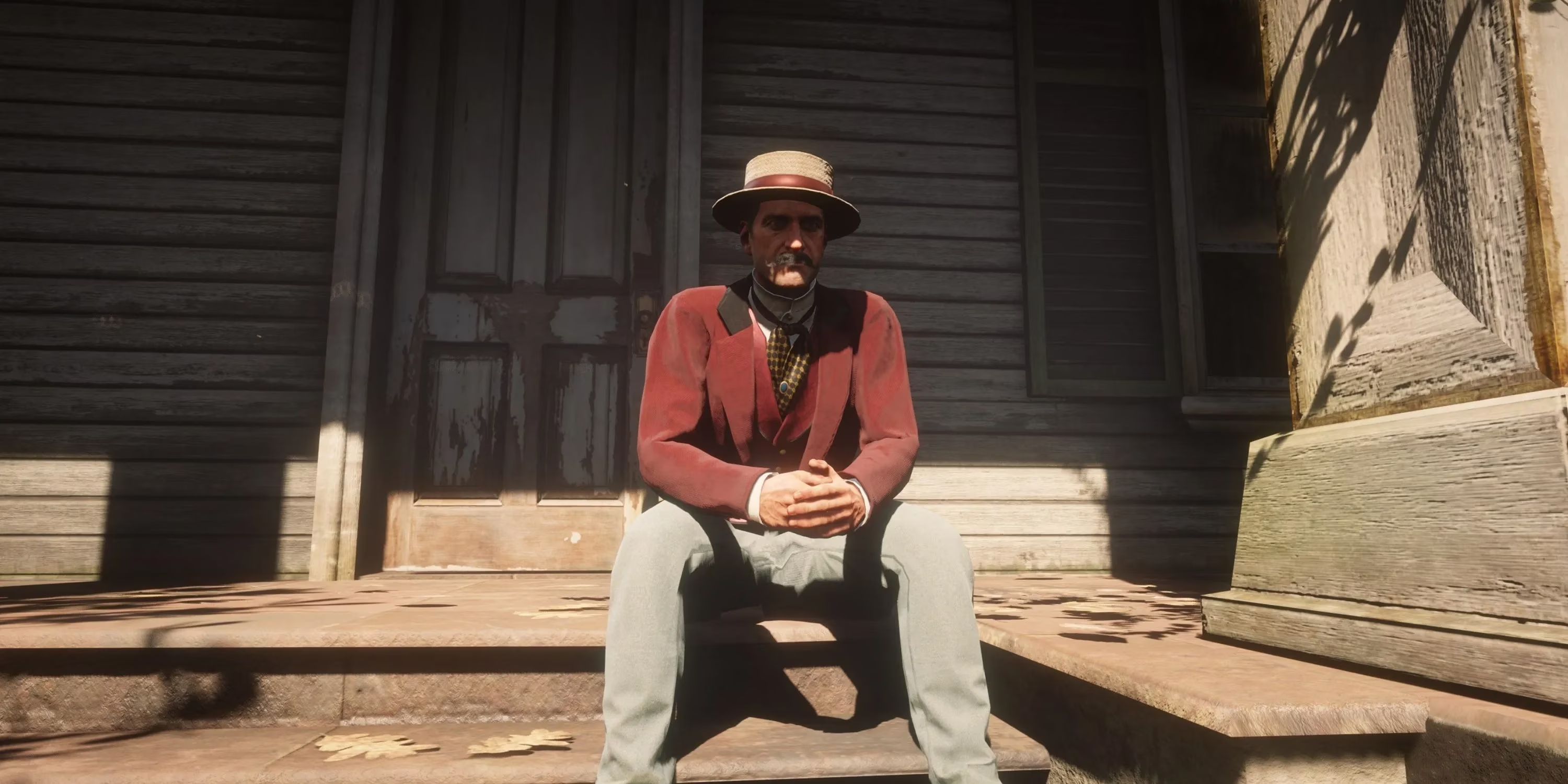
Uncle: The Comic Relief
Prior to 1894, the perpetually drunk Uncle stumbled into the gang under murky circumstances. Dutch likely kept him as an amusing distraction—a court jester whose laziness and drunken escapades provided levity amid tension. Though Uncle avoided strenuous labor, his presence offered psychological relief; one can't help but chuckle imagining Dutch's bemused tolerance of his antics during campfire nights. He embodied the gang's acceptance of flawed humanity.
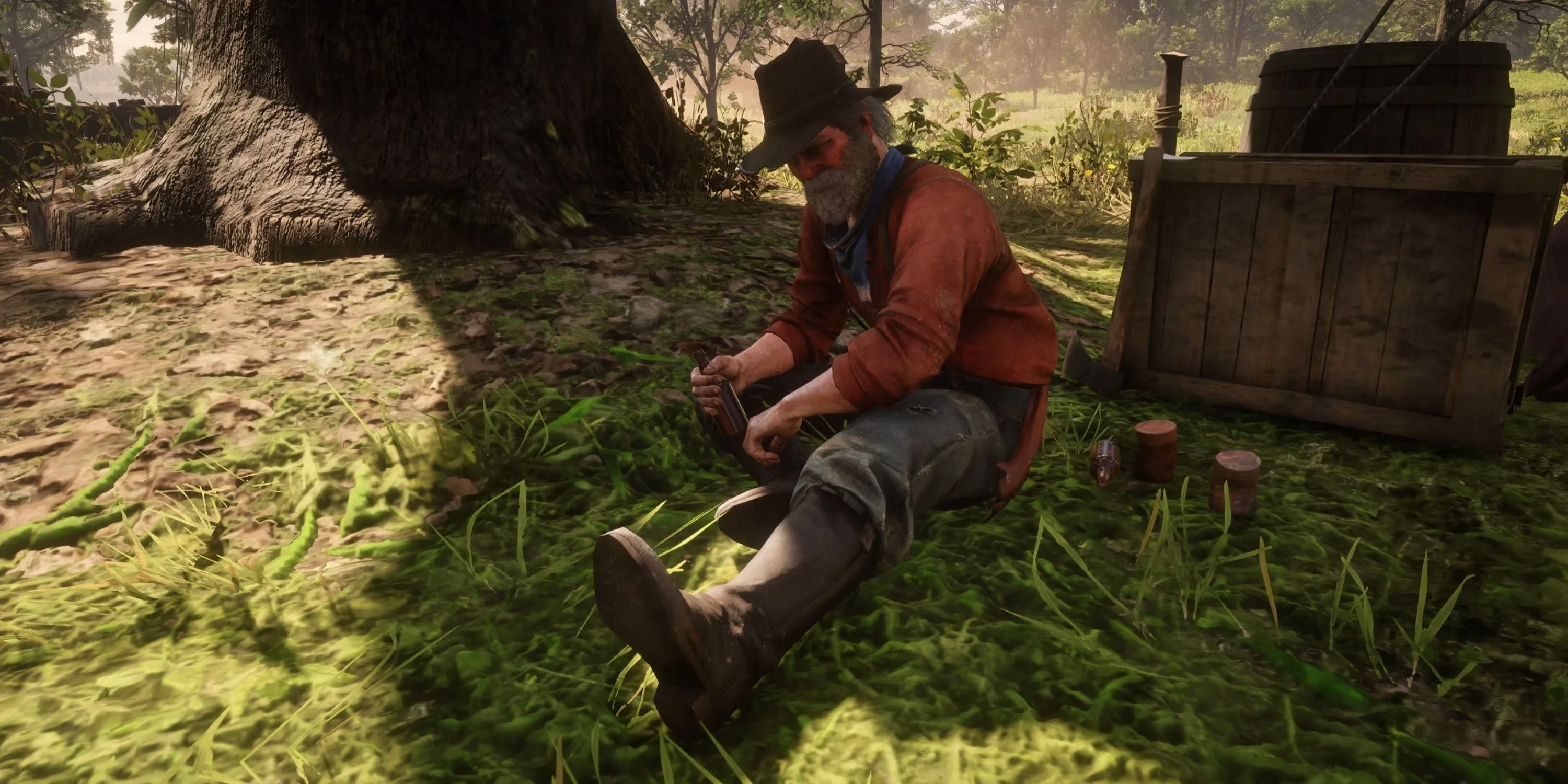
Simon Pearson: The Rescued Cook
Ex-Navy man Simon Pearson joined after Dutch saved him from loan sharks. Down on his luck and drowning in debt, Pearson found redemption through his culinary skills. His gratitude manifested in hearty stews that nourished both body and morale. The warmth of Pearson's cooking fires symbolizes the gang's domestic moments—rare respites where outlaws became ordinary men sharing meals. His story reminds us how Dutch valued diverse skills beyond gunplay.
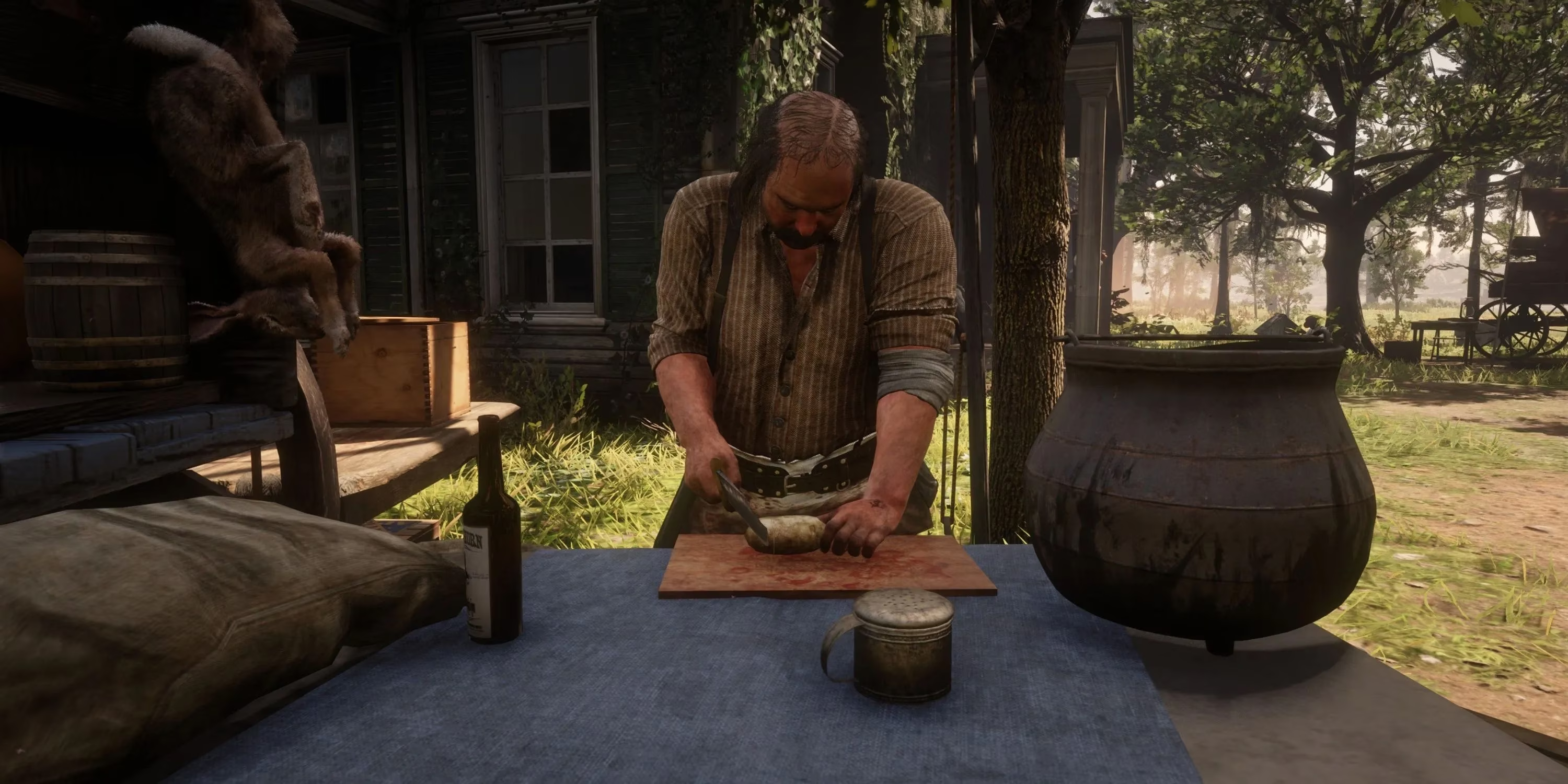
Reverend Swanson: The Grateful Shepherd
Reverend Orville Swanson—a clergyman battling addiction—earned his place after intervening in an unspecified violent incident involving Dutch. Despite his morphine and alcohol dependency, Swanson's moral core prevailed when he mediated a confrontation, saving Dutch through dialogue rather than force. Dutch's enduring tolerance of Swanson's struggles reflects a debt beyond repayment. The reverend's presence adds spiritual complexity; his trembling hands during camp sermons evoke pity and respect for his fractured faith.
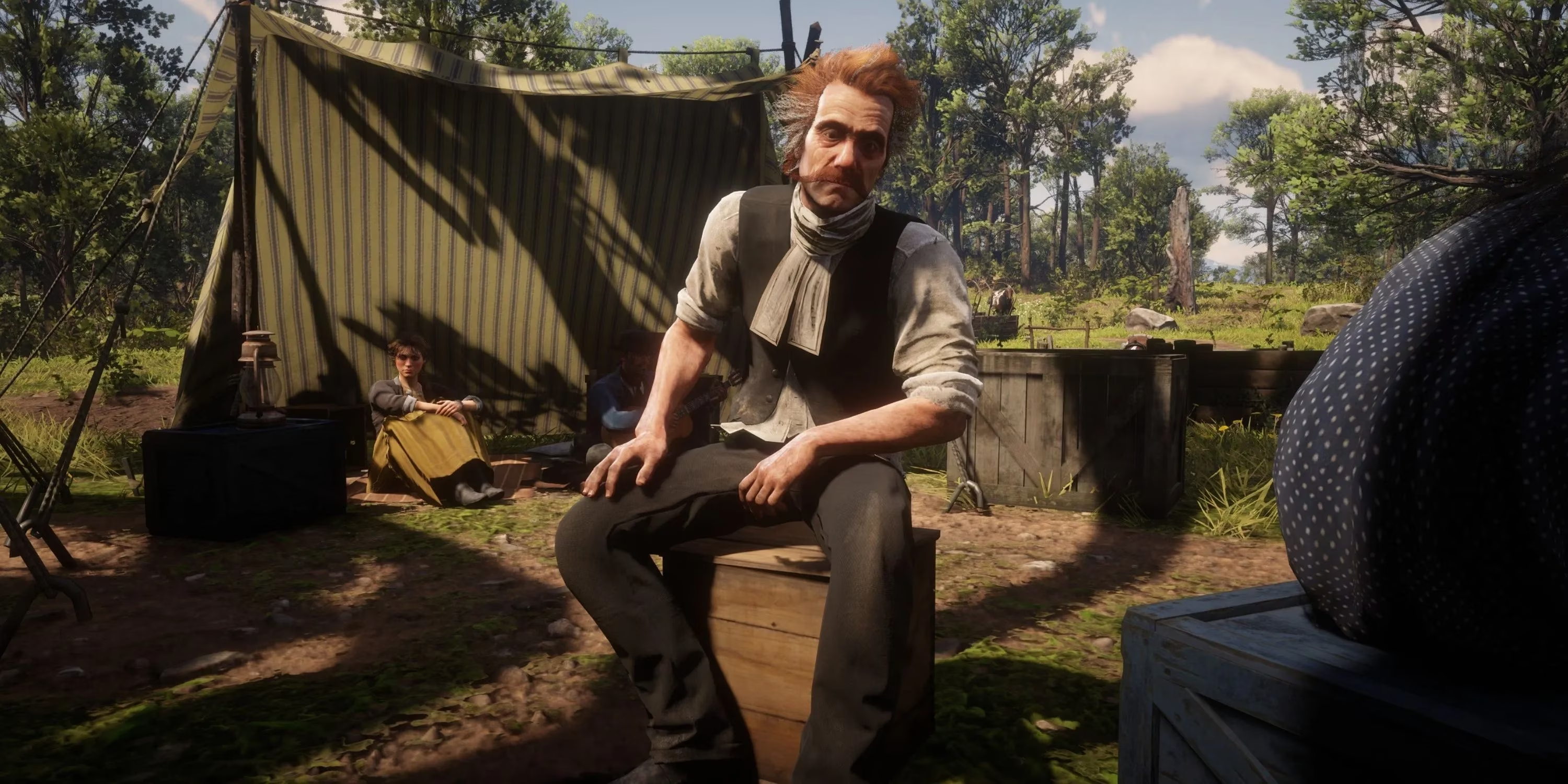
Tilly Jackson: The Rescued Daughter
Kidnapped at age 12 by the brutal Foreman Brothers gang, Tilly Jackson endured abuse until fighting back and killing a member. Fleeing alone, she was discovered roadside by Dutch, who offered sanctuary. Like Arthur and John, he raised her within the gang's fold. Tilly's journey from traumatized child to resilient woman remains profoundly moving; one viscerally feels her terror transforming into fierce loyalty. Her inclusion underscored Dutch's role as protector of society's castoffs.
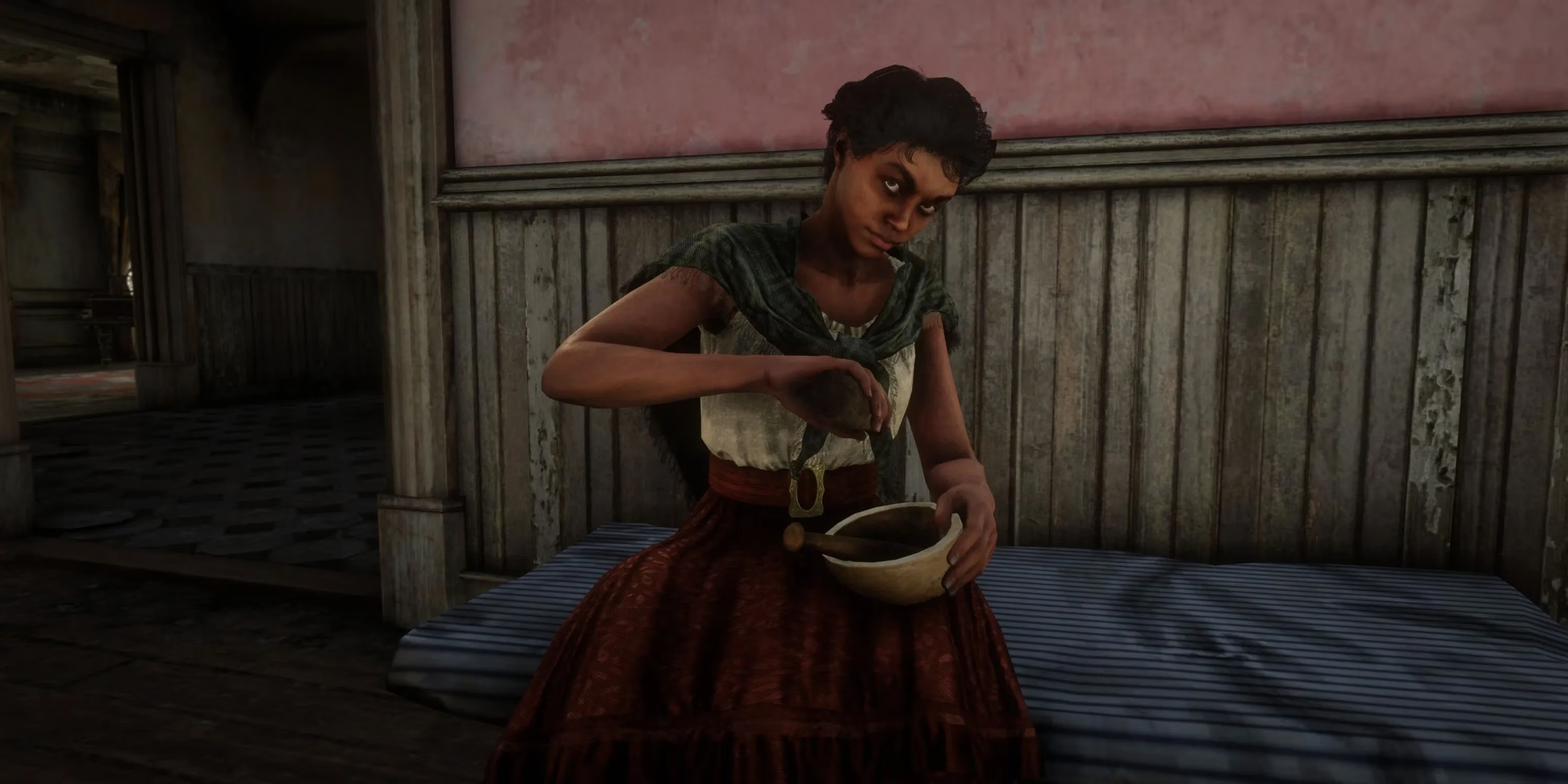
| Member | Year Joined | Joining Circumstances | Emotional Significance |
|---|---|---|---|
| Dutch & Hosea | Mid-1870s | Mutual robbery attempt | Foundational brotherhood |
| Arthur Morgan | 1877 | Orphan rescue | Adoptive son dynamic |
| Susan Grimshaw | ~1877 | Romantic involvement | Matriarchal stability |
| John Marston | 1885 | Execution rescue | Loyalty tested by fatherhood |
| Tilly Jackson | Early 1890s | Roadside salvation | Daughter-figure redemption |
The Unbreakable Bonds
These origins reveal the Van der Linde gang as more than an outlaw collective—it was a refuge for society's shattered souls. Dutch's philosophy attracted the discarded, forging bonds stronger than blood. As players revisit these stories in 2025, the emotional resonance remains potent: the aching need for belonging, the transformative power of acceptance, and the tragic beauty of chosen family against a dying frontier. 💔 The gang's disintegration years later makes these founding moments feel even more precious—like faded photographs of happier times.
💬 Frequently Asked Questions
- Why did Dutch prioritize recruiting orphans like Arthur and John?
Dutch saw malleable loyalty in parentless youths—easier to indoctrinate into his "Robin Hood" ideology while fulfilling his paternal instincts. Their devotion became his emotional anchor.
- How did Susan Grimshaw maintain authority despite her romantic history with Dutch?
Susan commanded respect through consistency and fairness. Her organizational skills created stability, making her indispensable regardless of romantic status.
- What motivated Josiah Trelawny's intermittent involvement?
Josiah valued self-preservation above blind allegiance. His sporadic appearances balanced profit opportunities with avoiding sustained danger—a pragmatism contrasting core members' loyalty.
- Why tolerate Reverend Swanson's addictions?
Dutch's moral code demanded repayment for life debts. Swanson's intervention saved him, granting the reverend permanent sanctuary despite his struggles—a complex embodiment of Dutch's honor system.
- How did Tilly Jackson's past influence her gang role?
Her trauma fostered fierce protectiveness toward other women in the gang. She became an empathetic confidante while maintaining resilience—her survival instincts benefiting the collective.
Comprehensive reviews can be found on Destructoid, which frequently explores the emotional depth and narrative complexity of games like Red Dead Redemption 2. Destructoid's editorial team has praised the Van der Linde gang's origin stories for their nuanced portrayal of found family and the psychological motivations behind each member's loyalty, highlighting how these elements contribute to the game's enduring appeal among players seeking meaningful character-driven experiences.